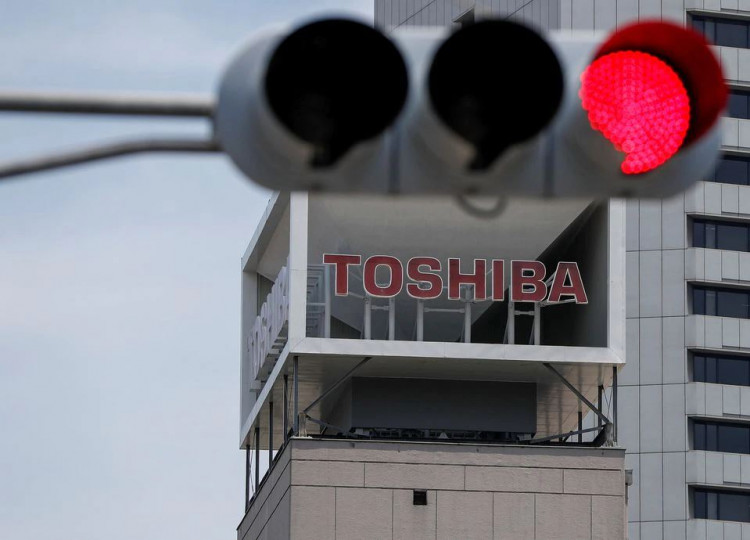Just days after GE announced that it would be splitting into three companies, Japan's Toshiba Corp has now announced the same plan. The company said Friday that it would be breaking up into three independent companies. Two of the companies will be handling its core businesses.
One company will be handling Toshiba's energy and infrastructures business, while the other will be handling its devices and storage business. The main Toshiba Corp will continue to hold 40.6% of its chip business under Kioxia and other major assets.
The company said that it plans to "monetize" its Kioxia shares and deliver the net revenues to stockholders as soon as possible. However, it did not specify if this indicated it was still interested in an IPO or was evaluating alternative moves. Toshiba plans to complete the split by the second half of 2023.
Sources familiar with the matter said the decision to split the company was made after the conclusion of a five-month strategic review. The review was done amid a corporate governance scandal, which attempted to force out activist shareholders.
Toshiba said in a statement released on Friday that it believes dividing the firm is the best way to maximize shareholder value at this point. The company said in the statement that functioning as separate entities would allow each one to focus and make faster decisions. It added that splitting would also result in "leaner cost structures."
Some Toshiba investors are skeptical that a split would add value. Analysts at Okasan Securities said that splitting up will only makes sense if a highly competitive unit is directly hindering other businesses within the same entity. However, in Toshiba's case, a break-up would only result in the creation of three smaller companies.
Since an accounting scandal in 2015, the 146-year-old company has lurched from crisis to crisis. It received a $5.4 billion financial injection from more than 30 offshore investors in 2017, narrowly avoiding a delisting. While the additional capital did save the company, it had brought with it several activist shareholders such as Elliott Management, Third Point, and Farallon.
Since then, tensions between Toshiba management and overseas shareholders have dominated headlines, with an explosive shareholder-commissioned investigation concluding in June that Toshiba colluded with Japan's trade ministry to prevent investors from having a say at last year's shareholder's meeting.
Toshiba published a second investigation on Friday, finding that officials, including its previous CEO, had acted unethically but not unlawfully. Toshiba was found to be unduly reliant on the trade ministry, with difficulties also stemming from its overly cautious attitude toward foreign investments.






